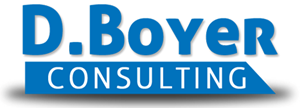Business is mostly conducted via email or phone communications.
Office hours 10:00 a.m. to 6:00 p.m, Mon. - Thurs., and 10:00 a.m. to 2:00 p.m. on Fridays.
SEND EMAIL INQUIRIES DIRECTLY TO:
Dawn.Boyer@me.com
Business is mostly conducted via email or phone communications.
Office hours 10:00 a.m. to 6:00 p.m, Mon. - Thurs., and 10:00 a.m. to 2:00 p.m. on Fridays.
SEND EMAIL INQUIRIES DIRECTLY TO:
Dawn.Boyer@me.com
Business is mostly conducted via email or phone communications.
Office hours 10:00 a.m. to 6:00 p.m, Mon. - Thurs., and 10:00 a.m. to 2:00 p.m. on Fridays.
SEND EMAIL INQUIRIES DIRECTLY TO:
Dawn.Boyer@me.com
Cover Letter Best Practices
November 15th, 2011 by Dawn Boyer
In this technology-based age, many companies are foregoing cover letters in the electronic uploads for digital resume storage, but some systems allow cover letters to be added separately. Recruiters may review the cover letter for various reasons, but here are a few discriminators used to consider or to reject a candidate.
What positive things do recruiters want to see in cover letters? The ability to write an idea concisely, proper grammar, spelling, and punctuation demonstrates a well-grounded education. Aesthetic placement of type font, white space, centering (vertical and horizontal) demonstrates a technical skill to use word processing software and awareness of creating a professional look and feel.
It’s hard to address a ‘real human being’ in any HR department. A Boolean search might bring up a point of contact in the company on social sites (company website, LinkedIn, or Facebook). If you query and find an employee’s name, they may be willing to share an HR rep’s name and contact info. Dear Sir or Madam is the professional alternative if you can’t find any names.
Cover letters should be one page – no more – with one-inch margins and 11 or 12-point type font (Arial or Times New Roman). If you can’t get the message across in three paragraphs, it’s too wordy. Contents of a cover letter should be concise and three paragraphs. A well-written paragraph has at least three sentences. Don’t start sentences or paragraphs with prepositions (e.g., and, but, because, etc.).
Most recruiters prefer resumes and cover letters uploaded into Automated Tracking Systems (ATS) for resume databases. Recruiters may ask for an e-mailed resume. Copy and paste it within the body of the email, but place it after your signature line. You should have a very short notification, e.g., “Per request, please find my cover letter and resume after my signature for your consideration.” Computer viruses make recruiters nervous and many come via attachments. Recruiters would rather have an opportunity to scroll down for information versus opening documents to save time and effort.
The first paragraph emphasizes the applicant’s interest in the company. Explain why you are targeting the employer and the job title. ‘Name drop’ a mutual contact if you have that advantage. “I am applying for the Whiffle Ball hole driller position because your company’s reputation is stellar in the junior league baseball industry for making the highest quality play equipment. Your emphasis on quality makes my skills as a driller a good match for (name of company)’s strategic objectives noted on your website.” This shows the applicant has performed research and shows the ability to communicate a point effectively.
Name-dropping might be impolite in some circles, but for job shopping, it might get your foot in the door. Mention a common contact to attract the attention of the recruiter. “Joe Bob, Pellet Supervisor in your molding plant, suggested my candidacy for this position.” Additionally, some companies provide incentives such as cash bonuses for employees, so this gives the recruiter documentation of the referral.
The cover letter is not your resume – provide a few salient points of interest in the second paragraph not explained in the resume. “A recent trip to the Congo provided valuable experience in creating Whiffle Ball leagues for schools in a district with three different languages. This experience has enriched my capability to use diverse communications skills together to ensure your company has effective methods of obtaining customer suggestions for where Whiffle holes are drilled in the balls. This explains the gap in employment for the summer of 2010 and the change in my career from nursing hamster pups to drilling Whiffle balls.”
The third paragraph should emphasize availability and refer to attached (or uploaded) resume and availability for interviewing (either telephonically or in person), accompanied by phone and e-mail information. The applicant’s return address is already in the resume – don’t waste precious text or white space on repeat information.
The cover letter is not a place to try sarcastic or witty humor. When there is no context, without visible body language, the humorous attempt may backfire. Write the letter professionally. Emphasize what you can do for the employer versus asking them to do you a favor. Try to avoid using the word ‘I’ too much in the cover letter – it’s not about you – it’s about the company’s need to find a qualified candidate for a position.
Even English professors can misspell words or get a comma in the wrong place. Send the cover letter through the grammar and spell check several times and then read the letter out loud to a peer to ensure it makes sense. Just because a word is spelled correctly, doesn’t mean it’s correctly used (e.g., granite = granted, fast paste = fast-paced). Get an unbiased outsider to proof the letter, a teacher, mentor, or a teenager in AP courses, to check the spelling. Look for sample letters on the Internet to compare.
The final piece of your cover letter is your signature. If you have your address on the resume and telephone number and/or email address in the third paragraph, all that is needed is a full name under a ‘wet’ signature. Some applicants scan a copy of their signature and insert the graphic so it looks like a real signature, but enables them to send the letter digitally without further scanning.
Copyright, 2005, Dawn D. Boyer
Readers Comments
Cover Letter Best Practices
November 15th, 2011 by Dawn Boyer
In this technology-based age, many companies are foregoing cover letters in the electronic uploads for digital resume storage, but some systems allow cover letters to be added separately. Recruiters may review the cover letter for various reasons, but here are a few discriminators used to consider or to reject a candidate.
What positive things do recruiters want to see in cover letters? The ability to write an idea concisely, proper grammar, spelling, and punctuation demonstrates a well-grounded education. Aesthetic placement of type font, white space, centering (vertical and horizontal) demonstrates a technical skill to use word processing software and awareness of creating a professional look and feel.
It’s hard to address a ‘real human being’ in any HR department. A Boolean search might bring up a point of contact in the company on social sites (company website, LinkedIn, or Facebook). If you query and find an employee’s name, they may be willing to share an HR rep’s name and contact info. Dear Sir or Madam is the professional alternative if you can’t find any names.
Cover letters should be one page – no more – with one-inch margins and 11 or 12-point type font (Arial or Times New Roman). If you can’t get the message across in three paragraphs, it’s too wordy. Contents of a cover letter should be concise and three paragraphs. A well-written paragraph has at least three sentences. Don’t start sentences or paragraphs with prepositions (e.g., and, but, because, etc.).
Most recruiters prefer resumes and cover letters uploaded into Automated Tracking Systems (ATS) for resume databases. Recruiters may ask for an e-mailed resume. Copy and paste it within the body of the email, but place it after your signature line. You should have a very short notification, e.g., “Per request, please find my cover letter and resume after my signature for your consideration.” Computer viruses make recruiters nervous and many come via attachments. Recruiters would rather have an opportunity to scroll down for information versus opening documents to save time and effort.
The first paragraph emphasizes the applicant’s interest in the company. Explain why you are targeting the employer and the job title. ‘Name drop’ a mutual contact if you have that advantage. “I am applying for the Whiffle Ball hole driller position because your company’s reputation is stellar in the junior league baseball industry for making the highest quality play equipment. Your emphasis on quality makes my skills as a driller a good match for (name of company)’s strategic objectives noted on your website.” This shows the applicant has performed research and shows the ability to communicate a point effectively.
Name-dropping might be impolite in some circles, but for job shopping, it might get your foot in the door. Mention a common contact to attract the attention of the recruiter. “Joe Bob, Pellet Supervisor in your molding plant, suggested my candidacy for this position.” Additionally, some companies provide incentives such as cash bonuses for employees, so this gives the recruiter documentation of the referral.
The cover letter is not your resume – provide a few salient points of interest in the second paragraph not explained in the resume. “A recent trip to the Congo provided valuable experience in creating Whiffle Ball leagues for schools in a district with three different languages. This experience has enriched my capability to use diverse communications skills together to ensure your company has effective methods of obtaining customer suggestions for where Whiffle holes are drilled in the balls. This explains the gap in employment for the summer of 2010 and the change in my career from nursing hamster pups to drilling Whiffle balls.”
The third paragraph should emphasize availability and refer to attached (or uploaded) resume and availability for interviewing (either telephonically or in person), accompanied by phone and e-mail information. The applicant’s return address is already in the resume – don’t waste precious text or white space on repeat information.
The cover letter is not a place to try sarcastic or witty humor. When there is no context, without visible body language, the humorous attempt may backfire. Write the letter professionally. Emphasize what you can do for the employer versus asking them to do you a favor. Try to avoid using the word ‘I’ too much in the cover letter – it’s not about you – it’s about the company’s need to find a qualified candidate for a position.
Even English professors can misspell words or get a comma in the wrong place. Send the cover letter through the grammar and spell check several times and then read the letter out loud to a peer to ensure it makes sense. Just because a word is spelled correctly, doesn’t mean it’s correctly used (e.g., granite = granted, fast paste = fast-paced). Get an unbiased outsider to proof the letter, a teacher, mentor, or a teenager in AP courses, to check the spelling. Look for sample letters on the Internet to compare.
The final piece of your cover letter is your signature. If you have your address on the resume and telephone number and/or email address in the third paragraph, all that is needed is a full name under a ‘wet’ signature. Some applicants scan a copy of their signature and insert the graphic so it looks like a real signature, but enables them to send the letter digitally without further scanning.
Copyright, 2005, Dawn D. Boyer










